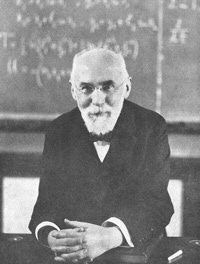Lorentz Graduation Prize for Groningen Student

Femke Oosterhof, Master’s student of Physics at the University of Groningen, has won the Lorentz Graduation Prize for theoretical physics. The Royal Holland Society of Sciences and Humanities (KHMW) in Haarlem awards the prize of € 3,000. The jury were full of praise about the high quality of Oosterhof's final thesis.
Oosterhof studied the phenomenon whereby neutrons (nuclear particles) spontaneously convert into antineutrons (neutron-antineutron oscillation). This phenomenon, if it can be observed, would be a strong indication in favour of ‘physics beyond the standard model’. Femke resorted to an effective quantum field theory to describe this ‘new physics’.
The jury were full of praise about the high quality of Oosterhof’s final thesis, which stood out due to a combination of a sound understanding of physics and impressive technical calculations. The way that the technically complicated calculations were so clearly explained was particularly unusual for a final thesis, in the opinion of the jury. The presentation ceremony will be held on 28 November.
In the meantime, Femke is continuing her research in a PhD at the University of Groningen, where she will apply the same techniques to neutron-antineutron oscillations in tiny atomic neuclei.
